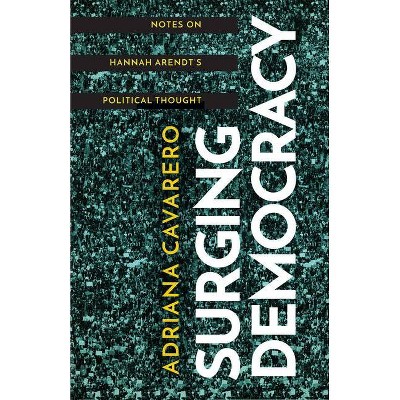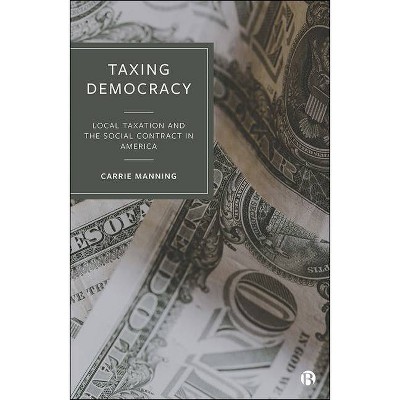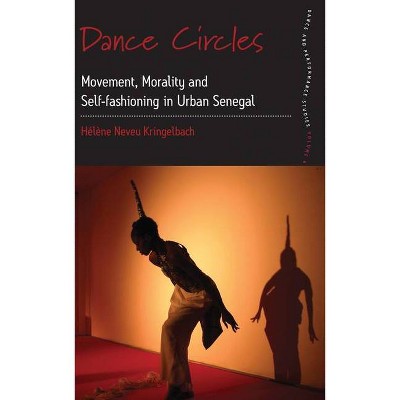Open Democracy - by Hélène Landemore (Hardcover)
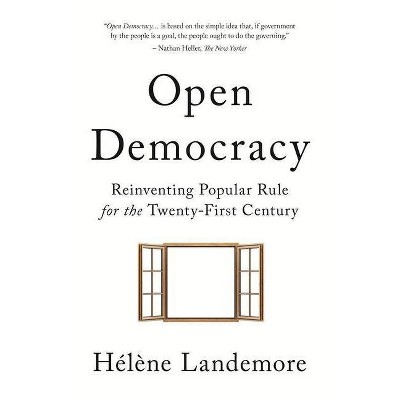
Similar Products
Products of same category from the store
AllProduct info
<p/><br></br><p><b> About the Book </b></p></br></br>"To the Ancient Greeks, democracy meant gathering in a public space and arguing based on an agenda set by a randomly selected assembly of 500 other citizens. To the Icelandic Vikings in Northern Europe a few centuries later, it meant gathering every summer in a large field, a place where they held their own annual "parliament," and similarly talking things through until they got to relatively consensual decisions about the common's fate. Our contemporary representative democracies are very different. Modern Parliaments are intimidating buildings that are much harder to access for ordinary citizens-quite literally. They are typically gated and guarded, and it often feels as if only certain types of people-people with the right suit, accent, bank account, connections, even last names-are welcome to enter them. In Open Democracy, Landemore revitalizes the model of success from ancient open democracies alongside the problems of the present-day representative democracies in order to get to the heart of the issues which contemporary democratic societies are dealing with today. Something has been lost between the two, Landemore argues: accessibility; openness to the ordinary man and woman. Landemore believes the move to "representative" democracy, a mediated form of democracy seen as unavoidable in mass, commercial societies, also became a move towards democratic closure, and exclusivity. Open Democracy asks how can we recover the openness of ancient democracies in today's world, and would it help the crisis of democracy? In diagnosing what is wrong with representative democracy, Landemore offers a normative alternative and strategy-one that is more true to the democratic ideal of "government of the people, by the people, for the people." This alternative conception (open democracy) is one Landemore believes can be used to imagine and design more participatory, responsive, accountable, and smarter institutions, thereby strengthening our democracies along with on the whole, our societies"--<p/><br></br><p><b> Book Synopsis </b></p></br></br><p><b><i>Open Democracy</i> envisions what true government by mass leadership could look like.--Nathan Heller, <i>New Yorker</i><br>How a new model of democracy that opens up power to ordinary citizens could strengthen inclusiveness, responsiveness, and accountability in modern societies </b> <p/>To the ancient Greeks, democracy meant gathering in public and debating laws set by a randomly selected assembly of several hundred citizens. To the Icelandic Vikings, democracy meant meeting every summer in a field to discuss issues until consensus was reached. Our contemporary representative democracies are very different. Modern parliaments are gated and guarded, and it seems as if only certain people--with the right suit, accent, wealth, and connections--are welcome. Diagnosing what is wrong with representative government and aiming to recover some of the lost openness of ancient democracies, <i>Open Democracy</i> presents a new paradigm of democracy in which power is genuinely accessible to ordinary citizens. <p/>Hélène Landemore favors the ideal of "representing and being represented in turn" over direct-democracy approaches. Supporting a fresh nonelectoral understanding of democratic representation, Landemore recommends centering political institutions around the "open mini-public"--a large, jury-like body of randomly selected citizens gathered to define laws and policies for the polity, in connection with the larger public. She also defends five institutional principles as the foundations of an open democracy: participatory rights, deliberation, the majoritarian principle, democratic representation, and transparency. <p/><i>Open Democracy</i> demonstrates that placing ordinary citizens, rather than elites, at the heart of democratic power is not only the true meaning of a government of, by, and for the people, but also feasible and, today more than ever, urgently needed.</p><p/><br></br><p><b> Review Quotes </b></p></br></br><br>[Landemore] argues that we need a new, more inclusive system of governance that is less elitist and more participatory to cure what ails democracy.-- "The Nation"<br><br>A fascinating, wide-ranging book.<b>---Rachael Walsh, <i>International Journal of Constitutional Law</i></b><br><br>Ambitious. . . . A scheme that breaks with two liberal-democratic institutions that are usually taken for granted: elections and political parties.<b>---Jan-Werner Mueller, <i>Project Syndicate</i></b><br><br>Important.<b>---Christopher Kutz, <i>Los Angeles Review of Books</i></b><br><br>A bold exploration of how we can move beyond a purely electoral conception of democratic representation. Using normative democratic theory and real-world examples of innovations in citizen representation, Hélène Landemore argues for a vision of democracy that is more faithful to popular rule, more likely to tap into democratic reason, and more stable and durable than electoral democracy.<b>---Erica Yu, <i>Erasmus Journal for Philosophy and Economics</i></b><br><br>Finalist for the North American Society for Social Philosophy Book Award<br><br>A great defence of both sortition and deliberation as complements to representative democracy.<b>---Pratap Bhanu Mehta, <i>Open Magazine</i></b><br><br><i>Open Democracy</i> envisions what true government by mass leadership could look like. Her model is based on the simple idea that, if government by the people is a goal, the people ought to do the governing.<b>---Nathan Heller, <i>New Yorker</i></b><br><p/><br></br><p><b> About the Author </b></p></br></br><b>Hélène Landemore</b> is associate professor of political science at Yale University. She is the author of <i>Democratic Reason</i> (Princeton) and <i>Hume</i>. Twitter @landemore
Price History
Cheapest price in the interval: 29.99 on October 23, 2021
Most expensive price in the interval: 29.99 on November 8, 2021
Price Archive shows prices from various stores, lets you see history and find the cheapest. There is no actual sale on the website. For all support, inquiry and suggestion messagescommunication@pricearchive.us
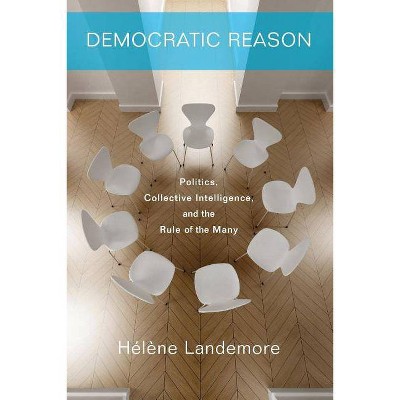


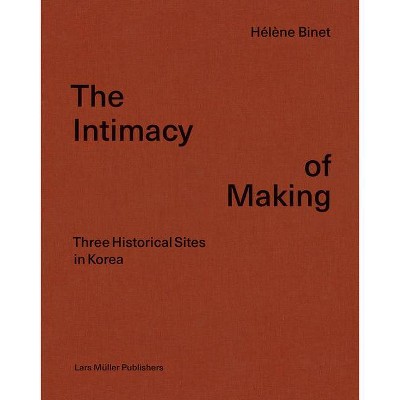

![[Sur]naturel Cartier - by François Chaille & Hélène Kelmachter (Hardcover)](https://target.scene7.com/is/image/Target/GUEST_1445a7f9-f8b2-49aa-a262-8926ce167f10)
